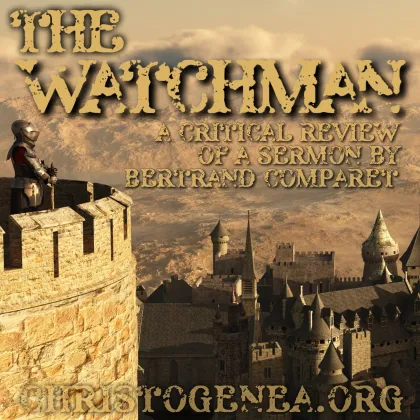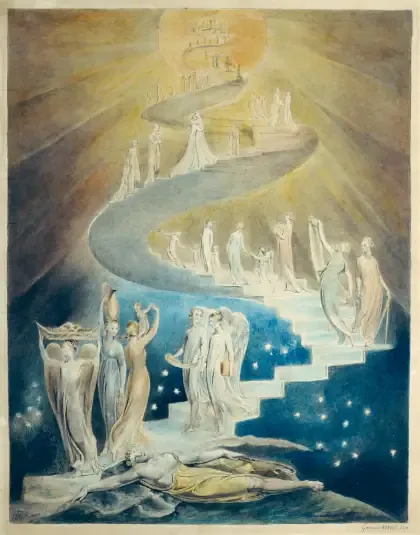Topical Discussions with Bertrand Comparet, January, 2025

Topical Discussions with Bertrand Comparet, January, 2025
Here I am going to present and critique a pair of rather short Bertrand Comparet sermons, the first titled The Kingdom of Heaven or in Heaven, and the second, The Miracle of the Origin of Our Race. I am taking this break from our Isaiah commentary mostly because I have still been sick from the cold which has encumbered me from last Thursday. Even with that, on Tuesday morning I recorded a session with a gentleman in South Africa who has a website and podcast titled Jerm Warfare, which is actually a play on his given name. Yesterday I was hoping that he would be able to publish that in time for me to play it this evening, but he has not yet had the chance to do so. Therefore I will post that at Christogenea when it is available, and I will not leave it for next Friday night, by which time I hope to return to Isaiah. Yahweh willing, I should be making more appearances on that program in the near future, to further discuss our Christian Identity profession.
As with nearly all of our Bertrand Comparet sermons, this one was transcribed by Jeanne Snyder and later digitized for internet publication by Clifton Emahiser, where he included many of his own notes. Something I do not usually mention is that copies of Jeanne’s transcription had been sold for many years by Kingdom Identity Ministries in Harrison Arkansas, and Clifton had also obtained copies and resold them to prisoners and to others on his mailing list who wanted one. I long ago gave away my own copy to a prisoner, but I have one of Clifton’s copies here. Perhaps I will take a photograph and post it along with this presentation. Because we are working with Clifton’s digitized copies here, we will also include his notes.
Image














 Please click here for our mailing list sign-up page.
Please click here for our mailing list sign-up page.








Recent comments